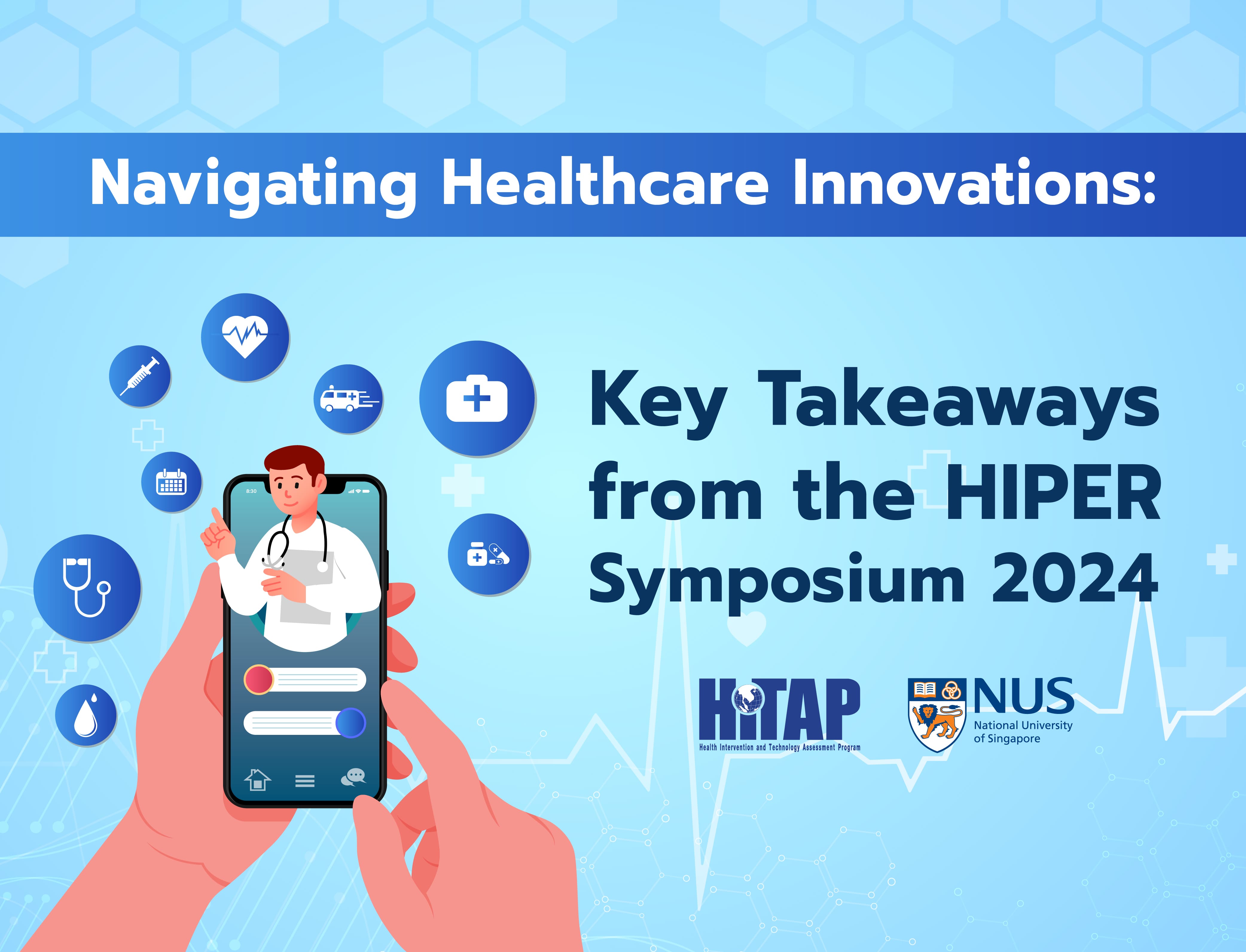Overcoming Barriers: Financing and Service Delivery for Vaccination in Fragile and Conflict-Affected States


In a constantly evolving world of healthcare, staying updated and informed about new developments and innovations is essential. The Health Intervention and Technology Assessment Program (HITAP), a Health Technology Assessment (HTA) organisation in the Ministry of Public Health, Thailand, had the opportunity to participate the Health Intervention and Policy Evaluation Research (HIPER) Symposium 2024, held on 20-22 March 2024 in Singapore. Under the theme of addressing key challenges and advancements in HTA practice and policy, the symposium brought together esteemed experts and stakeholders from across the healthcare ecosystem.
Organized by the Saw Swee Hock School of Public Health at the National University of Singapore (SSHSPH NUS), this symposium provided a platform for thought-provoking discussions and knowledge-sharing on critical issues and advancements in Health Technology Assessment (HTA) practice and policy. With a diverse line-up of speakers from Ministries of Health and HTA practitioners from the Asia Pacific region, the event aimed to equip participants with the tools and insights necessary to contribute to the HTA process effectively. It also served as a platform where the exchange of ideas and best practices took center stage.
The following key takeaways from the symposium highlight the most pressing concerns and innovative approaches shaping the future of healthcare delivery and policy evaluation.
Concluding thoughts:
The HIPER Symposium shed light on critical aspects of healthcare policy, technology assessment, and collaborative approaches in the sector. It provided insightful perspectives on the relationship between health expenditure and life expectancy, the institutionalization of HTA in various countries, and strategies for successful implementation strategies and challenges in healthcare innovation. The symposium emphasized the importance of continued collaboration, knowledge-sharing, and learning from successful implementations for driving positive change in global healthcare systems. Moving forward, the symposium stressed the need for stakeholder engagement, innovative methodologies, and continuous progress monitoring to achieve improved healthcare outcomes for all.